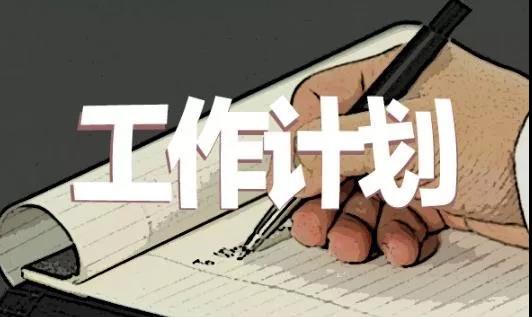[大陆学生首次在哈佛毕业典礼演讲]中国学生哈佛演讲
时间:2020-08-05 20:34:49 来源:天一资源网 本文已影响 人 
篇一:《视频围观首位哈佛毕业典礼登台演讲的大陆学生》
He Jiang: 1st Chinese student speaks at Harvard commencement
视频围观:何江--首位哈佛毕业典礼登台演讲的大陆学生
由一位来自中国的学生代表优秀毕业生演讲,这是哈佛365年毕业典礼的第一次。
当地时间5月26日,哈佛大学第365届毕业典礼在哈佛最古老的校园区Harvard Yard里举行。今年的毕业典礼备受中国青年学生和家长关注,因为一位来自中国的毕业生何江作为优秀毕业生代表发言,这是哈佛大学给予毕业生的最高荣誉。
何江是哈佛大学生物系博士毕业生,本科毕业于中国科技大学。硕士和博士均毕业于哈佛大学,现在MIT作博士后。这次哈佛的毕业演讲并不是何江第一次代表优秀学生发言,从中科大毕业时,他曾获得学校的最高荣誉奖——郭沫若奖学金,并作为获奖代表发言。(京华记者辛欣)
Harvard commencement addresses, with their centuries-old history, are welcoming their first-ever Chinese orator on May 2
He Jiang, a 2020 Harvard PhD graduate in biochemistry, will deliver a speech representing theuniversity’s thirteen graduate and professional schools at the commencement on Thursday.Other guest speakers sharing the podium include Academy Award-winning director StevenSpielberg.
By tradition, Harvard selects three graduating representatives to speak at the commencement:One of the orations is delivered in Latin by a graduating senior from the college; the second, inEnglish, is also by a graduating college senior; and the third by a student representative of thegraduate and professional schools.
(无法正常播放的童鞋,点击这里哦!)
After three rounds of fierce competition, including drafts and auditions, three orators werechosen by a panel of judges to deliver an address — from memory — to an assemblage ofapproximately 32,000, including members of the governing board, honorary degree recipients,faculty, parents, alumni and graduates.
He Jiang, a young Chinese scholar who comes from a small village in central China's Hunanprovince, never thought he could achieve such a high honor for a student.
"My parents knew I was participating in the competition from the very beginning because Ishared my thoughts, my stress and panic with them during the three rounds of elimination,” hesaid. “So when I got selected, they were really happy for me.”
"I also shared the news with one of my professors at USTC (University of Science andTechnology of China), he was so surprised because he never thought a Chinese student couldgive a speech on such a lofty platform," He added.
Asked why he entered the competition, He simply said,
"I wanted more voices from China to beheard."
He said from the point of view of a science student, his speech will focus on theuneven distribution of science and technology in the modern world.
"Combining our educational experience at Harvard, extending it to our mission and whatresponsibilities we should undertake after graduation to make the world a better place," He said.
He said his speech will be under seven minutes long and a professor has been helping him editthe draft and coaching him on public speaking skills.
But ability and hard work are what really have led He to the podium.
He grew up in a small village with poor educational opportunities. His father, who didn't finish highschool and was locked out of many work opportunities in big cities because of it, impressed uponHe and his younger brother from their boyhood the importance of studying hard, using his ownexperience as an example.
"My father was always strict with us so we’d avoid repeating his experience," He said.
Unlike his father, He's mother was more like a friend, who always encouraged him through thechallenges of learning and life.
"One of the biggest problems for rural students is that the available educational resources arelimited and students lack motivation," He said.
"So thanks go to my dad for pushing me to studyin that environment and to my mom, whose encouragement helped keep me focused on mystudies."
He graduated from the University of Science and Technology of China — one of China's topuniversities — with a bachelor’s degree in 2009 and was accepted into Harvard’s PhD program onfull scholarship the same year. All he knew about America was from books and films and he wasin for some culture shock.
"Studying at Harvard, everybody around me was outstanding and my English was not as fluentas it is now. I lost confidence. I even began to wonder how I ever got accepted to Harvard," hesaid.
But with time he found his footing.
"The thing I like about American campus culture is that it’s diversified andencourages diversity,” he said.
“As long as you are willing to discover, you can find avariety of resources you are interested in, to communicate with professionals and tomake friends.”
He took a job as resident tutor for undergraduates and through that he learned about thecommencement orations competition.
Apart from working and studying, He took part in activities on and off campus, including start-upand innovation sharing sessions, activities held by Chinese student associations and readingclubs.
"I’ve always had a great interest in literature," He said.
One of his favorite authors is Peter Hessler.
"His books River Town, Oracle Bones and CountryDriving are all my favorites," he said.
Encouraged by a history professor, He took up a pen and started writing about rural China inEnglish.
"China has been under such a rapid development in recent years and China's villages havedeveloped rapidly as well. Foreigners have more knowledge of China's mega cities, but with alimited number of channels, their impressions of China's rural life may still be lacking," said He,who has deep feelings for his hometown and still goes back to visit.
"I hope more of China's voices will be heard in the West, since what we have done sofar is far from enough," He said
Taking advantage of weekends and spare time, He finished up his book and just signed with oneof Europe's biggest publishers.
He is now doing postdoctoral work at MIT in bioengineering, studying methods of computer-assisted drug screening and early detection of cancer.
It hasn’t been an easy road, but that’s okay.
"Perhaps it's because I suffered a lot growing up,so many frustrations to me are things I can definitely bear," He said.(sourcePeople)
篇二:《何江在哈佛大学2020毕业典礼上的演讲》
何江在哈佛大学2020毕业典礼上的演讲(中英版)
我读初中的时候,有一次,一只毒蜘蛛咬伤了我的右手。我问我妈妈该怎么处理---我妈妈并没有带我去看医生,她而是决定用火疗的方法治疗我的伤口。
她在我的手上包了好几层棉花,棉花上喷撒了白酒,在我的嘴里放了一双筷子,然后打火点燃了棉花。热量逐渐渗透过棉花,开始炙烤我的右手。灼烧的疼痛让我忍不住想喊叫,可嘴里的筷子却让我发不出声来。我只能看着我的手被火烧着,一分钟,两分钟,直到妈妈熄灭了火苗。
你看,我在中国的农村长大,在那个时候,我的村庄还是一个类似前工业时代的传统村落。在我出生的时候,我的村子里面没有汽车,没有电话,没有电,甚至也没有自来水。我们自然不能轻易的获得先进的现代医疗资源。那个时候也没有一个合适的医生可以来帮我处理蜘蛛咬伤的伤口。
在座的如果有生物背景的人,你们或许已经理解到了我妈妈使用的这个简单的治疗手段的基本原理高热可以让蛋白质变性,而蜘蛛的毒液也是一种蛋白质。这样一种传统的土方法实际上有它一定的理论依据,想来也是挺有意思的。但是,作为哈佛大学生物化学的博士,我现在知道在我初中那个时候,已经有更好的,没有那么痛苦的,也没有那么有风险的治疗方法了。于是我便忍不住会问自己,为什么我在当时没有能够享用到这些更为先进的治疗方法呢?
蜘蛛咬伤的事故已经过去大概十五年了。我非常高兴的向在座的各位报告一下,我的手还是完好的。但是,我刚刚提到的这个问题这些年来一直停在我的脑海中,而我也时不时会因为先进科技知识在世界上不同地区的不平等分布而困扰。现如今,我们人类已经学会怎么进行人类基因编辑了,也研究清楚了很多个癌症发生发展的原因。我们甚至可以利用一束光来控制我们大脑内神经元的活动。每年生物医学的研究都会给我们带来不一样突破和进步——其中有不少令人振奋,也极具革命颠覆性的成果。
然而,尽管我们人类已经在科研上有了无数的建树,在怎样把这些最前沿的科学研究带到世界最需要该技术的地区这件事情上,我们有时做的差强人意。世
界银行的数据显示,世界上大约有12%的人口每天的生活水平仍然低于2美元。营养不良每年导致三百万儿童死亡。将近3亿人口仍然受到疟疾的干扰。在世界各地,我们经常看到类似的由贫穷,疾病和自然匮乏导致的科学知识传播的受阻。现代社会里习以为常的那些救生常识经常在这些欠发达或不发达地区未能普及。于是,在世界上仍有很多地区,人们只能依赖于用火疗这一简单粗暴的方式来治理蜘蛛咬伤事故。
在哈佛读书期间,我有切身体会到先进的科技知识能够既简单又深远的帮助到社会上很多的人。本世纪初的时候,禽流感在亚洲多个国家肆虐。那个时候,村庄里的农民听到禽流感就像听到恶魔施咒一样,对其特别的恐惧。乡村的土医疗方法对这样一个疾病也是束手无策。农民对于普通感冒和流感的区别并不是很清楚,他们并不懂得流感比普通感冒可能更加致命。而且,大部分人对于科学家所发现的流感病毒能够跨不同物种传播这一事实并不清楚。
于是,在我意识到这些知识背景,及简单的将受感染的不同物种隔离开来以减缓疾病传播,并决定将这些知识传递到我的村庄时,我的心里第一次有了一种作为未来科学家的使命感。但这种使命感不只停在知识层面,它也是我个人道德发展的重要转折点,我自我理解的作为国际社会一员的责任感。
哈佛的教育教会我们学生敢于拥有自己的梦想,勇于立志改变世界。在毕业典礼这样一个特别的日子,我们在座的毕业生都会畅想我们未来的伟大征程和冒险。对我而言,我在此刻不可避免的还会想到我的家乡。我成长的经历教会了我作为一个科学家,积极的将我们所会的知识传递给那些急需这些知识的人是多么的重要。因为利用那些我们已经拥有的科技知识,我们能够轻而易举的帮助我的家乡,还有千千万万类似的村庄,让他们生活的世界变成一个我们现代社会看起来习以为常的场所,而这样一件事,是我们每一个毕业生都能够做的,也力所能及能够做到的。
但问题是,我们愿意来做这样的努力吗?
比以往任何时候都多,我们的社会强调科学和创新。但我们社会同样需要注意的一个重心是分配知识到那些真正需要的地方。改变世界并不意味着每个人都要做一个大突破。改变世界可以非常简单。它可以简单得变成作为世界不同地区的沟通者,并找出更多创造性的方法将知识传递给像我母亲或农民这样
的群体。同时,改变世界也意味着我们的社会,作为一个整体,能够更清醒的认识到科技知识的更加均衡的分布,是人类社会发展的一个关键环节,而我们也能够一起奋斗将此目标变成现实。
如果我们能够做到这些,或许,将来有一天,一个在农村被毒蜘蛛咬伤的少年或许不用火疗这样粗暴的方法来治疗伤口,而是去看医生得到更为先进的医疗护理。
The Spider’s Bite
When I was in middle school, a poisonous spider bit my right hand. I ran to my mom for help—but instead of taking me to a doctor, my mom set my hand on fire.
After wrapping my hand withseveral layers of cotton, then soaking it in wine, she put a chopstick into my mouth,and ignited the cotton. Heat quickly penetrated the cotton and began to roast my hand. The searing pain made me want to scream, but the chopstick prevented it. All I could do was watch my hand burn - one minute, then two minutes –until mom put out the fire.
You see, the part of China I grew up in was a rural village, and at that time pre-industrial. When I was born, my village had no cars, no telephones, no electricity, not even running water. And we certainly didn’t have access to
modern medical resources. There was no doctor my mother could bring me to see about my spider bite.
For those who study biology, you may have grasped the science behind my mom’s cure: heat deactivates proteins, and a spider’s venom is simply a form of protein. It’s coolhow that folk remedy actually incorporates basic
biochemistry, isn’t it? But I am a PhD student in biochemistry at Harvard, I now know that better, less painful and less risky treatments existed. So I can’t help but ask myself, why I didn’t receive oneat the time?
Fifteen years have passed since that incident. I am happy to report that my hand is fine. But this question lingers, and I continue to be troubled by the unequal distribution of scientific knowledge throughout the world. We have learned to edit the human genome and unlock many secrets of how cancer progresses. We can manipulate neuronal activity literally with the switch of a light. Each year brings more advances in biomedical research-exciting, transformative accomplishments. Yet, despite the knowledge we have
amassed, we haven’t been so successful in deploying it to where it’s needed most. According to the World Bank, twelve percent of the world’s population lives on less than $2 a day. Malnutrition kills more than 3 million children
annually. Three hundred million peopleare afflicted by malaria globally. All over the world, we constantly see these problems of poverty, illness, and lack of resources impeding the flow of scientific information. Lifesaving knowledge we take for granted in the modern world is often unavailable in these
underdeveloped regions.And in far too many places, people are still essentially trying to cure a spider bite with fire.
While studying at Harvard, I saw how scientific knowledge can help others in simple, yet profound ways. The bird flu pandemic in the 2000s looked to my village like a spell cast by demons. Our folk medicine didn’t even have half-measures to offer. What’s more, farmers didn’t know the difference between common cold and flu; they didn’t understand that the flu was much more lethal than the common cold. Most people were also unaware that the virus could transmit across different species.
So when I realized that simple hygiene practices like separating different animal species could contain the spread of the disease, and that I could help make this knowledge available to my village, that was my first ―Aha‖ moment as a budding scientist. But it was more than that: it was also a vital inflection point in my own ethical development, my own self-understanding as a member of the global community.
Harvard dares us to dream big, to aspire to change the world. Here on this Commencement Day, we are probably thinking of grand destinations and big
adventures that await us. As for me, I am also thinking of the farmers in my village. My experiencehere reminds me how important it is for researchersto communicateour knowledge to those who need it. Because by using the sciencewe already have, we could probably bring my village and thousands like it into the world you and I take for granted every day. And that’s an impact every one of us can make!{大陆学生首次在哈佛毕业典礼演讲}.
But the question is, will we make the effort or not?
More than ever before,our society emphasizes science and innovation. But an equally important emphasis should be on distributing the knowledge we have to where it’s needed. Changing the world doesn’t mean thateveryone has to find the next big thing. It can be as simple as becoming better
communicators, and finding more creative ways to pass on the knowledge we have to people like my mom and the farmers in their local community. Our society also needs to recognize that the equal distribution of knowledge is a pivotal step of human development, and work to bring this into reality.
And if we do that, then perhaps a teenager in rural China who is bitten by a spider will not have to burn his hand, but will know to seek a doctor instead
篇三:《2020哈佛毕业典礼演讲》
感谢凯蒂,感谢佛斯特校长、哈佛大学部成员、监事会、还有迎接我回校园的所有教职员工、校友和学生!能来到这里我很激动,不仅是因为我能在哈佛大学每363届毕业典礼上对优秀毕业生和校友讲话,更因为我能站在欧普拉去年曾站的相同地方!omg!
下面开始进行我们的首要任务,为2020届毕业生热烈鼓掌,这是他们赢得的。
毕业生都很兴奋,但这几周同时肯定也让他们有些精疲力竭。家长们,我指的不是期末考试,而是四年级运动会,最后一次舞会以及午夜巡游。总之,今年的校园很让人激动。
哈佛橄榄球队连续第七次击败耶鲁,男子篮球队连续两年进入到了ncaa赛事第二轮,还有男子壁球队获得全国冠军。谁会想哈佛竟然有这么强大的运动能力。不久,就会有人问,你们什么时候学术能力能够超过体育能力?
我个人同哈佛的联系开始于1964年,我从约翰霍普金斯大学毕业,被录取到这里的商学院,你们感谢在想、或是正在同旁边的人窃窃私语说他怎么就进了哈佛的商学院,毕竟他的学术成绩这么出色,总能成为班上排名位于前半部分的学生,我不知道,比我自己更惊讶的可能就演唱会有我的教授了。无论如何,今天我又回到了剑桥。
我注意到,这里同我当学生时有些变化,广场附近我原来很喜欢的elise三文治餐厅现在成了一家墨西哥卷饼店,原来提供美味啤酒和香肠的wursthaus变成现在的工艺美味酒吧,我不知道这是什么玩意,原来的霍利奥克中心现在改名叫史密斯校园中心,你难道不讨厌校友用自己的名字命名所有东西吗?
不过也有好消息,哈佛保留了五十年前我刚进校时的优良传统,仍然是美国最具声望的大学,同其他伟大的大学样,它位于美国民主实验的心脏地带,哈佛的目的不只是幸知识,还包括增进我们关于国家的理想。各种背景,各种信仰,探索各种问题的人都能在伟大的大学中自由开放的学习知识并探讨想法。今天我想跟大家谈谈这种自由对于每个人而言是多么重要,无论我们多么强烈反对别人的观点,对他人想法的容忍以及表达自身言论的自由是伟大大学中不可侵害的价值,两者结合在一起构成了维持民主社会根基的神圣信赖。但我要告诉大家,这种信赖,是很脆弱的,特别是在君主、暴君、多数的专横倾向下。
最近,这种倾向经常再现在我们的大学校园和社会中,这是个坏消息,而且很不幸的是,哈佛以及我自己的城市纽约也都见证过这种趋势。首先,在纽约市你可能记得,几年前有些人强烈反对在世贸中心的旧址几个街区远的专访建 一座清真寺,这是一个情感的问题。民意调查显示,超过2/3的美国人都反对在那里建清真寺,即使是反诽谤联盟,这一被公认为全车宗教自由最热情的捍卫者,也毫不掩饰对该项目表示反对,反对者进行着反对和示威遣责开发者,要求市政府停止这项工程这是他们的权利,我们保护他们的搞辩权,但他们的观点绝对是错误的,我们拒绝屈从。政府如果单独选 出某种宗教阻止,而且只阻止在特定地点建立宗教活动场所,这绝对是和伟大美国的道德原则背道而驰的,这应该是宪法保护所不允许的。
美国这个五十州联邦依赖于两大价值的结合自由和宽容。正是这两大价值的结合,让一个不信神的国家,但事实上,没有任何国家比美利坚合众国更愿意保护人类的各种信仰和哲学,不过这种保护需要依
相关关键词: 2018上海软科世界学科排名!哈佛17个全球榜首!清华9个世界前十 哈佛大学学科排名 哈佛大学励志语录 哈佛中美学生领袖峰会 《哈佛教子枕边书》读后感










